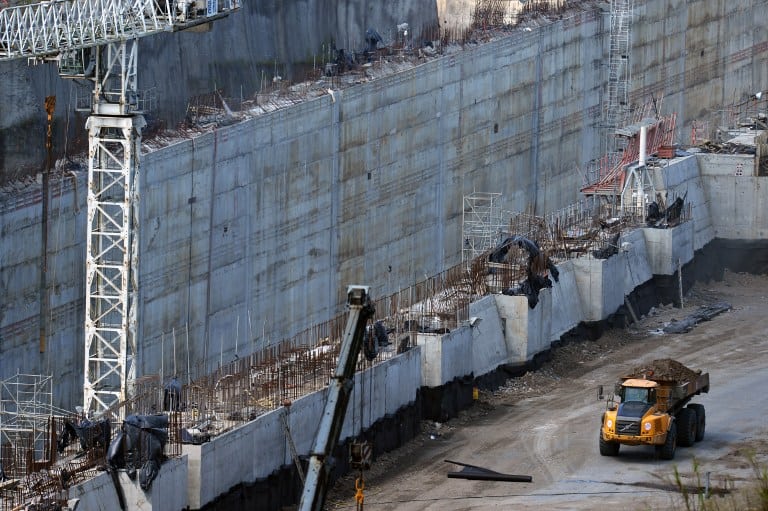PANAMA CITY – Work to expand the Panama Canal will proceed despite a financial dispute that could derail the project, an official managing the major waterway said Saturday ahead of a key deadline.
The Grupo Unidos por el Canal (GUPC) consortium, led by Spanish builder Sacyr, has threatened to suspend the expansion work by Monday unless Panama pays for $1.6 billion in “unforeseen” costs.
“We are ready to deal with all eventualities, but I am sure that enlargement of the canal will go ahead with or without” the GUPC, canal administrator Jorge Quijano said.
“Our intention is to finish as quickly as possible, (even) if work is suspended; … we will complete the work no matter what,” he added at a ceremony marking the 100-year anniversary of the canal’s inauguration in 1914.
Attempts to resolve the dispute through dialogue and mediation efforts by Spanish and Panamanian authorities have failed so far, but “negotiations remain open,” Quijano said.
He added, however, that talks have begun with other companies in case the contract with GUPC falls through.
The consortium, tasked with building a third set of locks for the canal – the most expensive part of the expansion project costing $3.2 billion – has already “significantly” scaled back its activities, according to Quijano.
With a total price tag of $5.2 billion, the expansion work on the canal began in 2009 with the goal of being done by 2014 to coincide with the waterway’s 100th birthday.
It aims to make the 80-kilometer (50-mile) waterway, which handles five percent of global maritime trade, big enough to handle new cargo ships that can carry 12,000 containers.
But completion was pushed back to 2015 after a first disagreement between the canal authority and GUPC over cement quality.
In the current dispute, GUPC says it ran into unforeseen costs because the canal authority gave the builders the wrong information regarding the area’s geology.
But the canal authority has countered that the contractor’s claims “lack any foundation.”
The GUPC consortium includes Impreglio of Italy, Belgium’s Jan de Nul and Constructora Urbana of Panama.






